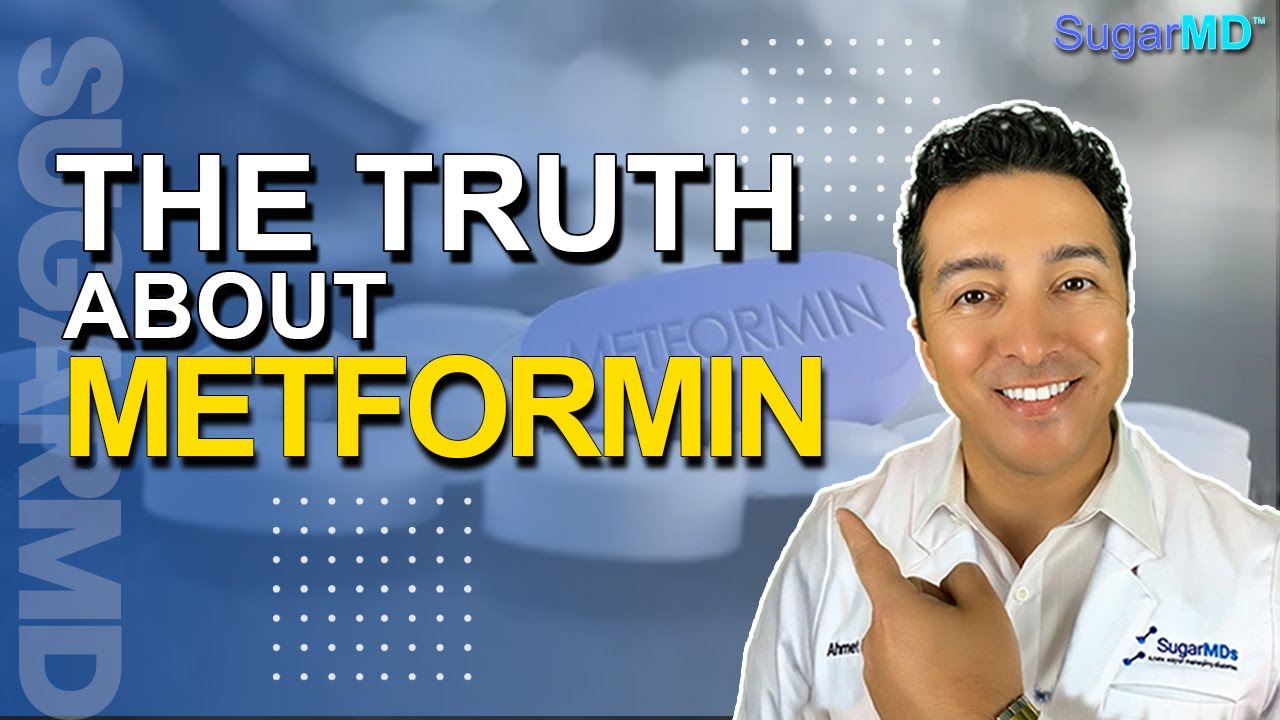Does Metformin Work as a Life-Extension Drug?
Summary
TLDRThe script explores whether the diabetes drug Metformin has anti-aging properties. Originating from the toxic plant goat's rue, Metformin activates AMPK, potentially reducing blood sugar, cholesterol, and body fat while mitigating fibrosis and slowing cancer progression. Studies suggest Metformin may extend lifespan in C. elegans worms and mice, with observational data indicating a survival advantage in diabetic cancer patients. However, its effectiveness in humans remains a subject of ongoing research.
Takeaways
- 💊 Metformin, a widely prescribed diabetes drug, is being studied for potential anti-aging effects.
- 🌿 The drug originated from the plant goat's rue, which was used in the Middle Ages for treating diabetes symptoms.
- 🔍 Metformin works by activating AMPK, a cellular energy sensor that helps regulate glucose and lipid metabolism.
- 🛡️ AMPK activation by metformin can lead to health benefits beyond blood sugar control, such as reduced cholesterol and body fat.
- 🚫 The original compound from goat's rue, galegine, was too toxic for human use and was modified to create metformin.
- 🏆 Metformin is the most prescribed drug for type 2 diabetes, with over 90 million annual prescriptions in the U.S.
- 🌱 Metformin may also promote the growth of beneficial gut bacteria, adding to its health effects.
- 💉 Observational studies suggest that metformin users have a survival advantage and lower risk of death from cancer.
- 🐛 In C. elegans worms, metformin has been shown to extend lifespan by nearly 40 percent, indicating anti-aging properties.
- 🧬 Metformin's effects on lifespan are still under investigation in mice and humans, with mixed results across different species.
- 👨⚕️ Research indicates that diabetics on metformin live longer than those on other diabetes drugs, and even longer than nondiabetics.
Q & A
What is the primary purpose of the drug Metformin?
-Metformin is primarily used as a diabetes drug, specifically for managing type 2 diabetes by lowering blood sugar levels.
What historical use of goat's rue is mentioned in the script?
-Goat's rue was used as an herbal medicine in the Middle Ages to treat symptoms like thirst and frequent urination, which are now recognized as signs of diabetes.
How does the plant goat's rue produce a compound that could potentially help with diabetes?
-Goat's rue produces a mitochondrial poison called galegine. At the right dose, it could impair energy production enough to activate AMPK, which would then reduce the liver's sugar production and lower blood sugar levels.
What was the outcome of the attempt to use galegine in humans?
-Galegine proved too toxic for human use and was modified into a milder form, which led to the creation of metformin.
Why is metformin referred to as a 'sugar eater'?
-Metformin was sold originally as Glucophage, which means 'sugar eater,' reflecting its role in lowering blood sugar levels.
What are some of the additional health effects of metformin beyond its primary use for diabetes?
-Beyond its use in diabetes, metformin also appears to foster the growth of good bacteria in the gut, lower cholesterol and body fat, and reduce the synthesis of excess proteins, which can have health benefits.
How does metformin potentially impact fibrosis?
-Metformin, by activating AMPK, can switch the body into energy-conservation mode, reducing the energy budget for superfluous activities like fibrosis, thus potentially slowing down fibrotic processes.
What is the correlation between metformin use and cancer survival rates?
-Observational studies involving diabetic cancer patients have shown that those on metformin experienced a significant survival advantage, with a 26 percent decreased risk of dying from cancer.
How does metformin affect lifespan in different species?
-In C. elegans worms, metformin can extend lifespan by nearly 40 percent, and it also improves the healthspans and lifespans of mice. However, it failed to extend the lives of rats, possibly due to the high dose used or the specific strain's resistance to calorie restriction.
What are the implications of metformin use in humans in terms of longevity?
-Data from metformin trials suggests that diabetics on metformin live significantly longer than those taking different blood sugar-lowering drugs, and even longer than nondiabetics, suggesting a potential pro-longevity effect.
What are the potential downsides of metformin use that might be discussed in further detail?
-While the script suggests that metformin has many potential health benefits, it also hints at possible downsides that could be explored in further discussions, such as potential side effects or contraindications.
Outlines

هذا القسم متوفر فقط للمشتركين. يرجى الترقية للوصول إلى هذه الميزة.
قم بالترقية الآنMindmap

هذا القسم متوفر فقط للمشتركين. يرجى الترقية للوصول إلى هذه الميزة.
قم بالترقية الآنKeywords

هذا القسم متوفر فقط للمشتركين. يرجى الترقية للوصول إلى هذه الميزة.
قم بالترقية الآنHighlights

هذا القسم متوفر فقط للمشتركين. يرجى الترقية للوصول إلى هذه الميزة.
قم بالترقية الآنTranscripts

هذا القسم متوفر فقط للمشتركين. يرجى الترقية للوصول إلى هذه الميزة.
قم بالترقية الآنتصفح المزيد من مقاطع الفيديو ذات الصلة

Metformin, the Big New "Anti-Aging" Drug, Explained

The TAME Trial: Targeting Aging with Metformin

Why Peter Attia Changed his mind on METFORMIN

David Sinclair’s 2024 REVISED Supplement Protocol | Critical Changes!!

이 천연물질 덕분에 매일 아침, 더 젊게 깨어납니다!🌜멜라토닌 Journey Part 4🌛

Metformin: What Happens If You Take Metformin For A Week?
5.0 / 5 (0 votes)
